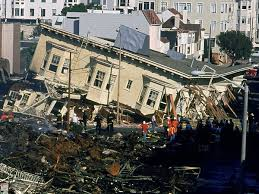BEFORE AND AFTER: DISASTER RECOVERY HELP FOR HOMEOWNERS

Earthquake
Do you know how to protect yourself during an earthquake or hurricane? What about a tornado or fire? You’ve probably heard lots of conflicting information over the years, and I am assuming you are confused, just as I am. I am here to shed some light and hopefully help you understand what you should do before and after a disaster strikes your area.
No matter where you live or what your risk level is for being affected by a natural disaster, it’s critical to be prepared on all fronts. Taking precautionary steps to aid your future recovery and knowing what to do in the aftermath of a disaster will increase the odds of rebuilding both your physical home and sense of personal well-being more quickly.
Here are a few suggestions to get you started on the path to preparedness:
Crucial Contacts
While the radio and local media often provide information regarding available assistance during and after a disaster, it’s a great idea to have that data at your fingertips beforehand. Save the numbers of emergency assistance agencies such as the American Red Cross, FEMA in your cell phone contacts. Get and store the names and phone numbers of your immediate neighbors so you can keep tabs on each other during an emergency. Many pets become afraid during the commotion of a hurricane or earthquake and escape the house, so having your local animal control number handy can be a lifesaver if you have to track them down.
 Hurricane
Hurricane
Create a Kit
A solid survival kit is one of the most valuable things to have at the ready when calamity strikes. Gather household basics such as gallons of water (one per person per day, for at least three days), non-perishable foods for both people and pets, flashlights, first aid kit and a battery-powered radio with extra batteries. Include any prescription medications, as well as other health-related needs. Store items in airtight plastic bags and put the entire supply kit in one or two easy-to-carry containers such as plastic bins or a duffel bag.
 Wild Fires
Wild Fires
Document Your Property
When you’re forced to evacuate during a disaster, there’s little or no time to gather together important documents and proof of ownership of valuable items. So, well before there’s any indication of an emergency, take time to gather together essential papers such as birth certificates, passports, insurance policies and your latest mortgage statement to ensure you have contact info for your mortgage service. Take photos or a video of every room in your house, focusing on walls, cabinets and large appliances.
Realize Your Risk
Most of us understand the need for homeowners insurance. However, many people are uninformed when it comes to choosing the type of coverage that will protect them when a flood or other natural disaster happens. The National Association of Insurance Commissioners (NAIC) started the #YourRiskIsReal campaign as part of an ongoing effort to educate consumers about flood risks and the need to consider purchasing flood insurance. Their website (NAIC.org) offers a short, interactive What the Flood! quiz that presents complex insurance concepts in easy-to-understand terms. Answers to questions such as “If a hurricane floods your car, do you file a claim with auto or home insurance?” can help reveal misconceptions you may have about what kind of protection you need, and how to use it to its fullest advantage.
Make the Call
When you can, make a call to your insurance agent or your insurance company. Letting them know that you are safe and advising them of the extent of damage to your property. If you live and work in an area impacted by a storm, flood, tornado, fire, or other natural catastrophes, you could be eligible for assistance. Check with all the government agencies.
This information is key to making sure that you are prepared for what may happen and that you can recover as quickly as possible when the emergency has passed. With this info in hand, you are in a better position to help others who still need it. If you need to get in touch with family after a disaster, a new app from Microsoft called HelpBridge (iOS/Android/Windows Phone) can help. A little preparation before any catastrophic event will result in higher chances of survival for you, your family and loved ones, and an easier time recovering when everything is said and done.
 Flood
Flood
Put a proactive plan in place today and reap the rewards of reassurance!





